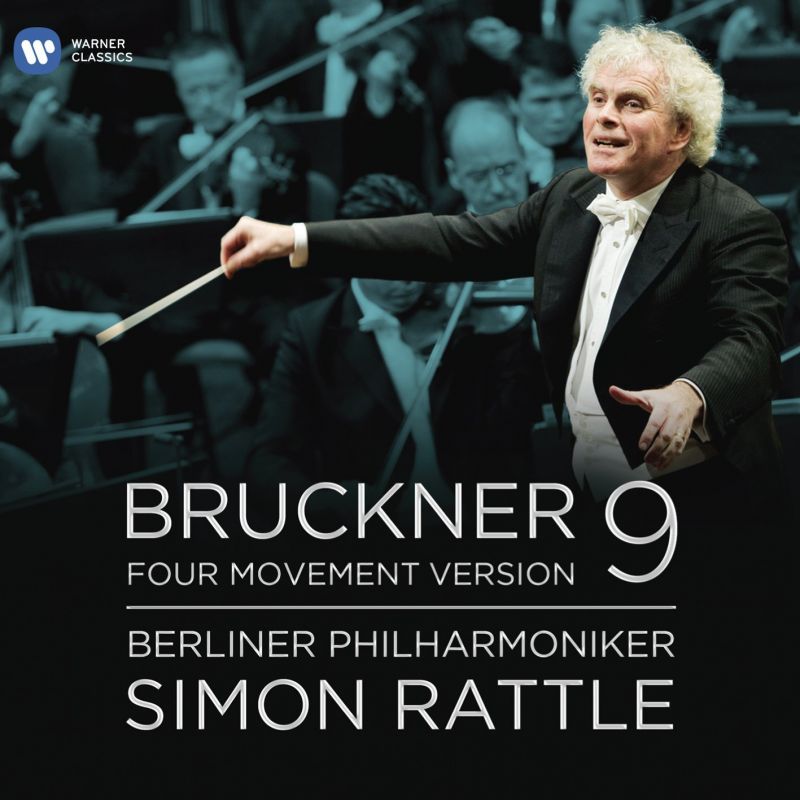BRUCKNER Symphony No 9
Rattle stakes his claim to a ‘complete’ Ninth
View record and artist detailsRecord and Artist Details
Composer or Director: Anton Bruckner
Genre:
Orchestral
Label: EMI
Magazine Review Date: 08/2012
Media Format: CD or Download
Media Runtime: 82
Mastering:
Stereo
DDD
Catalogue Number: 9529692

Tracks:
| Composition | Artist Credit |
|---|---|
| Symphony No. 9 |
Anton Bruckner, Composer
Anton Bruckner, Composer Berlin Philharmonic Orchestra Simon Rattle, Conductor |
Author: Rob Cowan
Rattle’s performance is consistently involving. The vast arches and sudden climate changes in the Adagio third movement are particularly well handled, the central build-up towards the prayer-like passage for strings at 15'50" austerely inevitable, the desolate wind writing soon afterwards (and the strings’ response) utterly disorientating, while the final climactic dissonance, and the route to it, is shattering – though as Rattle points out the Adagio’s end sends out signals ‘which must be resolved by a huge finale’. But the really interesting aspect of this performance, an aspect that led to an initial sense of disappointment, is that, unless I’m mistaken, the decision on Rattle’s part to avoid overstating certain passages in the first movement was made in the light of the finale’s balancing function. His overall interpretative policy seems to have been: never too much too soon.
I’ve now listened to one or other of the ‘performing versions’ a number of times, and Rattle’s sense of conviction is going to make it very difficult for me to return to the three-tier option with a good conscience, even though, from a purely interpretative standpoint, its many historic representatives, from Furtwängler and Walter to Wand, Karajan and Celibidache, offer insights that are unique. The finale as presented here is a true summation, what with its noble chorale, tangled fugue, weathered linking passages and shocking restatements of music from earlier movements.
I can’t think of many recent releases that are more musically important than this. If you love Bruckner’s Ninth, you have a duty to hear it; and if you don’t as yet know it and learn it from Rattle’s recording, then you’re in a very privileged position. But therein lies a strange paradox. How will you then view recordings of the work without its finale, even the greatest of them? Purely as interesting historic documents? Perhaps. And another thing: how does the ‘completed’ Bruckner Ninth compare, as an effective performing version, with Cooke’s Mahler Tenth? Fully on a par, I’d say.
Discover the world's largest classical music catalogue with Presto Music.

Gramophone Digital Club
- Digital Edition
- Digital Archive
- Reviews Database
- Full website access
From £8.75 / month
Subscribe
Gramophone Full Club
- Print Edition
- Digital Edition
- Digital Archive
- Reviews Database
- Full website access
From £11.00 / month
Subscribe
If you are a library, university or other organisation that would be interested in an institutional subscription to Gramophone please click here for further information.




